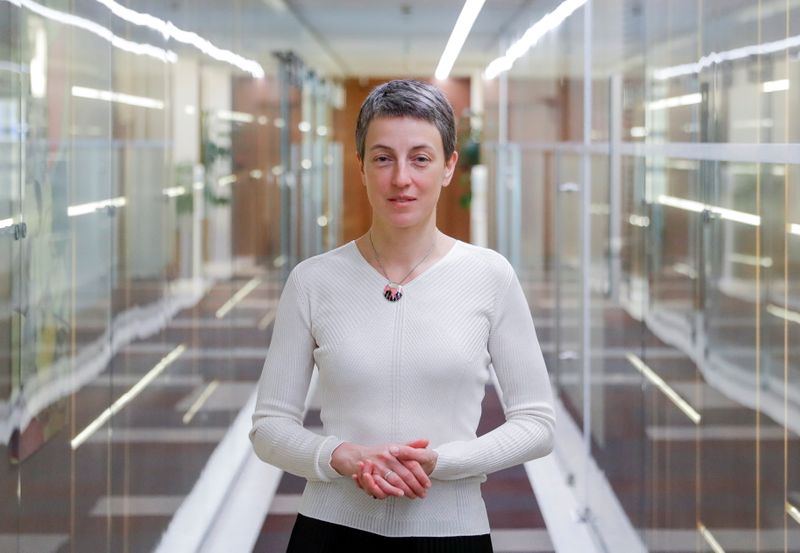By Tatiana Voronova and Katya Golubkova
MOSCOW (Reuters) - Russia's biggest bank Sberbank plans to expand its logistic business across the world's largest country as it seeks to capitalise on a booming e-commerce market, Chief Financial Officer Alexandra Buriko told Reuters.
As banking margins shrink, Sberbank is expanding in areas ranging from food delivery and taxi services to cloud computing and cyber security as it tries to tap into what it calls the broader ecosystems of its financial services customers.
Delivery is one of the top challenges in Russia, which accounts for about 17% of the world's land mass.
With e-commerce turnover doubling last year, but still only accounting for about 10% of total retail sales, all the main players from privately-owned Wildberries and Ozon to AliExpress Russia and Sberbank, are investing in logistics.
Sberbank will spend 300-350 billion roubles ($4.0-$4.6 billion) on its non-banking businesses over three years, with "a significant" portion focused on logistics, Buriko said in her first interview since joining the bank last year.
"We plan to invest into up-to-date automated logistic infrastructure as there is almost no such thing in Russia," said Buriko, who joined Sberbank from aluminium giant Rusal.
"There will be a hub for a big city, or one to two regions, depending on the place."
Buriko said the hubs would speed up delivery to all the main cities and smaller towns across Russia, complementing the state-controlled bank's chain of branches, which is the largest in the country.
Sberbank has tried to team-up with other players to expand in e-commerce but has decided to go it alone after failing to reach deals with Ozon and Yandex (NASDAQ:YNDX).
Buriko reiterated the bank is not planning acquisitions this year, adding it needed to start selling clothes as part of its e-commerce drive - something she said the bank could also do on its own.
"This is rather a question of a team which knows how to work with the sellers," she said.

($1 = 75.6050 roubles)
